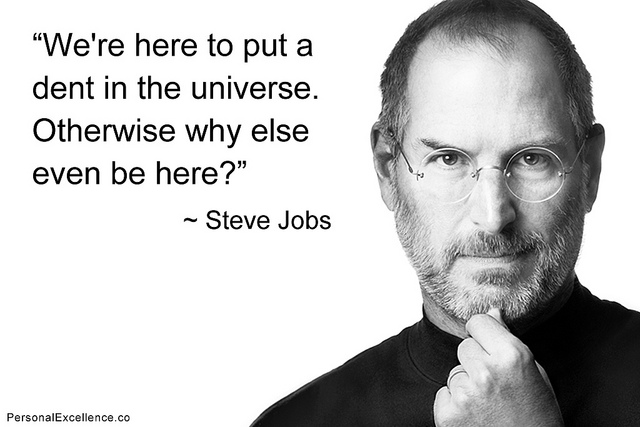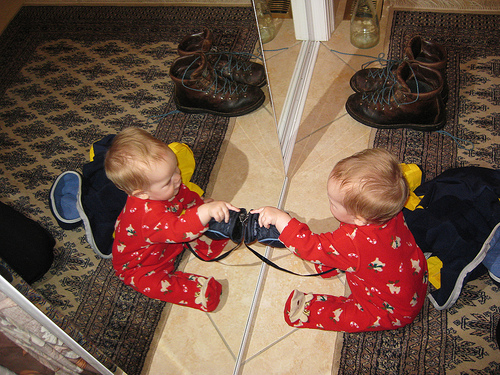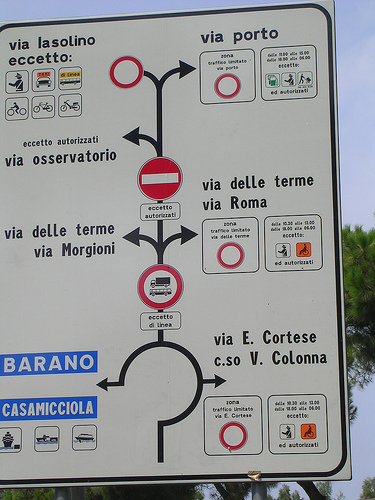opinion
The better you’ve learnt, the better you perform: messages for the executive coach
‘The better you’ve learnt, the better you perform’. For those of us in the business of enabling learning and development, hearing this from neuroscientist Dr Geoff Bird (of the Institute of Psychiatry, Kings College, London, and the Institute of Cognitive Science, UCL) at the recent workshop I facilitated with Megan Evans was both self-evident and thought-provoking. Executive coaching is about enabling greater effectiveness, so if I can understand how to optimise my clients’ learning (and my own), I’m going to be able to do a better job for them.
Why reflection works as a learning process
When neurons repeatedly get activated together, the strength of the connection (or synapse) between them – i.e. the learning – increases. In other words, repetition is key for learning, which explains why reflection as part of the coaching process works so well. Reflection means mentally revisiting a scenario to explore the various perspectives of what happened, examine the outcomes, distil out the learning and how it came about, consider options for next steps, and make plans for how to use it or experiment with it. Each time the brain revisits the scenario, the synapse is strengthened and the learning is reinforced.
Combined with the three-hour rule, the case for reflection becomes even more compelling: learning is reinforced when that new piece of learning is followed by practice and refinement all within three hours.
Slowing down to reflect
I’m always aware of the power of reflection – and especially reflection in writing – and having its basis in neuroscience explained was in itself a powerful piece of learning for me. I’m placing even more emphasis on it for clients now – and this both stretches clients who value coaching because the pace of their busy lives leaves them little time for thinking and challenges those who are so used to functioning fast that slowing down to reflect is far from easy. If you’re interested in speed-leadership and the value of slowing down, see my article in ‘Coaching at Work’.
Why goal-based learning works
Another characteristic of successful learning is a feeling of reward, acceptance and rapport – which implies an absence of threat or stress, whether by failure, by punishment or by exclusion from a group that matters to you. A sense of rapport means quicker results and more creativity, which we see in outstandingly productive teams and individuals. In neuroscience terms this means the neurotransmitter dopamine has been dumped in the brain (a neurotransmitter is a chemical signal that passes information from one neuron to the next across the synapses between them). Fascinatingly, goal-based learning, where the goals are based on what really matters to individuals, is one of the causes of a dopamine dump. Dopamine is a highly complex neurotransmitter, related – amongst other things – to increases in motivation and attention, and strongly associated with the reward mechanisms in the brain.
So if you want higher levels of motivation and attention in yourself and/or others, and more effective learning, find a way to increase the dopamine – perhaps by fostering the kind of collaboration and sense of belonging that are high in trust and rapport.
This partly explains why executive coaching works: it invariably uncovers individuals’ and teams’ values (the non-negotiables that really matter to them about work), it enables the clear articulation of their objectives, and – critically – it’s free of judgment, and represents an affirming, safe space, where development needs can be identified and challenges can be faced. The place of trust is central to a successful coaching relationship, which of itself enables awareness, learning and development – and hence changes in performance levels.
Mastery is anathema
The workshops that Geoff Bird contributes to for us invariably include concepts that are confronting and provocative, and this workshop was no exception. Consider this comment, for example: mastery is anathema. We can all think of outstandingly successful Olympic athletes, businesspeople, artists and others who strive relentlessly for improvement – and who seem to succeed because of that very striving towards mastery.
However Geoff tells us that actually achieving mastery means there’s less to learn – so there’s less opportunity for reward. In other words, it’s all about the journey, not the destination. Dan Pink’s work, which identifies three conditions for motivation as autonomy, mastery and purpose (see a video and more on the book ‘The Surprising Truth about What Motivates Us’) comes to mind here – and I wonder now whether what he’s really getting at regarding mastery is the drive towards it rather than the achievement of it.
There are lessons here too for leaders: part of the leader’s role is to release their followers’ abilities in the interests of progressing their organisation’s agenda. This means raising performance levels and finding new ways of addressing challenges. It means maximising opportunities for learning and adapting on the basis of that learning. So leaders who know how to optimise the conditions for their own and their people’s learning – who can create more opportunities for dopamine dumps – are going to maximise their chances of success for themselves and their organisations.
Senior people – indeed anyone thinking about their career development – who build in the search for working environments and a career path that will maximise their learning opportunities are likely to also maximise their chances of fulfilment and therefore success. And those working across cultures or in multicultural environments who know how to maximise harmony, minimise conflict, bring a curiosity for learning and an attitude of acceptance of ‘what is’ are also going to be those most likely to develop aligned, creative, productive teams and minimise wasted effort.
Photo by SalFalko via Compfight
Lessons from neuroscience for learning and performance
Leaders who know how to optimise the conditions for their own and their people’s learning are going to maximise their chances of success for themselves and their organisations. Senior people – indeed anyone thinking about their career development – who build in the search for working environments and a career path that will maximise their learning opportunities is likely to also maximise their chances of fulfilment and therefore success. And those working across cultures or in multicultural environments who know how to maximise harmony, minimise conflict, bring a curiosity for learning and an attitude of acceptance are also going to be those most likely to develop aligned, creative, productive teams and minimise wasted effort.
Read more »Career strategy: purpose and meaning, values and strengths
New Microsoft CEO Satya Nadella has pinpointed meaning at work as a fundamental goal because that’s ‘what makes the best work happen’. In my career development coaching with executives and senior managers, questions of meaning and purpose, values and beliefs, drivers and obstacles, emotional awareness and a capacity to situate yourself in your systems, are core to career focus or refocus.
Read more »The multi-generational workforce - and diversity of pace
In most organisations baby-boomers (and older) work alongside Generations X and Y. Their attitudes to pace can divide them: Xers and Yers often resist the idea of slowing down long enough to reflect while the baby boomers are more inclined to reflect. The generations are most effective when they’re aware of and respect others’ assumptions and world views - and coaches are most effective when they can enter the client’s world.
Read more »Teams, listening and connection
Leaders are sometimes solitary and lonely figures, disconnected from their team . Leaders who who listen to their teams see in return greater engagement, better retention rates and bigger, more long-lasting results.
Read more »Optimism: a route to high performance
Humans tend to overestimate the likelihood of positive events, and underestimate the likelihood of negative events. Optimists work harder and longer hours than pessimists, which may account for their higher pay - and optimism has been linked to achievement in education, business, sport and electoral politics. This doesn't seem to fit with our society's tendency to drive for perfectionism, condemn mistakes, and focus on what's gone wrong.
Read more »Resilience, the bottom line and Ordinary Magic
Research has shown that engaged organisations experienced 11.74% quarterly revenue growth compared to a 6.30% decline in revenue at organisations with less engagement - and resilience helps build engagement. resilience is often the backdrop to my executive coaching, Success isn’t about travelling a smoother road but rather about climbing out of the pothole and bouncing back – and the key to being able to do that isn’t just to keep going, but to keep learning. Also relevant is the work of Ann Masten, on Ordinary Magic: children’s resilience is linked to: connection with competent and caring adults, cognitive and self-regulation skills, positive views of the self, and motivation to be effective - just like leaders in many ways.
Read more »Self-awareness: the heart of executive coaching
My belief is that leadership is about creating momentum for a better world by inspiring and engaging other people: in other words, enabling human flourishing. If leaders are to get things done through other people they need to create and nurture trusting, vibrant relationships, to inspire with a vision, to persuade and energise, and to engage with other people’s perspectives. This ability to connect with others is crucially dependent on the ability to connect with self: to become aware of one’s own behaviours and thinking, drivers and blockers. Equipping a client to become deeply self-aware is at the heart of executive coaching.
Read more »Chaos and organisational life
In the chaos and confusion that sometimes is the hallmark of life at work, while their organisations are demanding big results, what leaders really need is the simplicity and peace to know who they are and that they have the resources to sustain and nourish themselves.
Read more »Creativity, innovation and leadership
David Bowie, pop artist and visual artist, was a creative and innovative pioneer. The leaders we need in our turbulent and fast-changing climate likewise value experimentation, creativity and innovation, they read the market and the system, and they have the courage to pioneer.
Read more »Career refocus: stepping off the treadmill
Several of my executive coaching clients feel like they're on a treadmill, stressed and under pressure. And yet it's exceptional for any of them to choose to get off the treadmill. Instead, they make career decisions based on a fuller sense of awareness, within a context of well thought-through perspectives, rather than being based on emotion, stress, exhaustion or just not seeing broader horizons
Read more »











